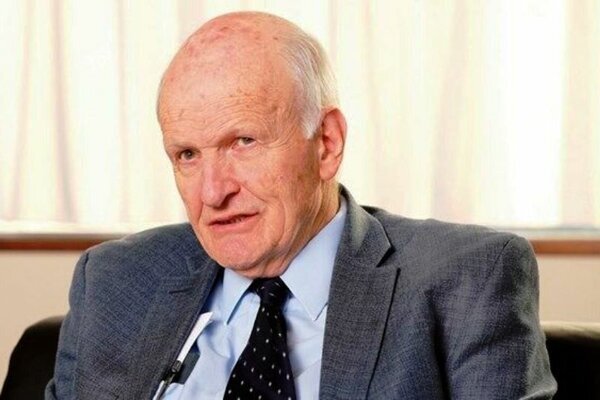Risk of military confrontation between China and U.S. is growing, ex-White House official warns

TEHRAN – Frank Von Hippel, who was responsible for national security issues in the White House Office of Science and Technology Policy from 1993 to 1994, warns about “the danger of growing military confrontation” between China and the United States.
In an interview with the Tehran Times, Hippel says he is concerned about “the possibility of war if China decides to seize Taiwan by force.”
Hippel, a nuclear physicist and professor of public and international affairs at Princeton, adds, “Since the stakes are so high, such a war could turn nuclear.”
Australia, the UK, and the U.S. and have announced a security pact in what is seen as an effort to counter China. It will let Australia build nuclear-powered submarines for the first time, using technology provided by the U.S.
The AUKUS pact, which will also cover AI and other technologies, is one of the countries' biggest defense partnerships in decades, analysts say.
China has condemned the agreement as "extremely irresponsible". China has also told the U.S., the UK, and Australia to abandon their “cold war” mentality or risk harming their own interests.
Besides China, France is also furious at the new U.S. security alliance with Australia, Britain.
“France had a $66 billion deal to sell Australia conventionally powered submarines. Naturally, it is angry that Australia canceled that deal in favor of the new deal with the U.S. and UK,” Hippel adds.
Following is the text of the interview:
Q: How do you see Biden’s submarine accord with Australia? What are its messages to China and the world?
A: I have two principal concerns:
i) The dangers of the growing military confrontation between China and the U.S. I worry especially about the possibility of war if China decides to seize Taiwan by force. Since the stakes are so high, such a war could turn nuclear.
ii) The fact that U.S. and UK reactors are fueled with weapon-grade (93.5%-U-235) uranium. I have argued for almost 30 years that this is a terrible example for the U.S. to set for the world. Iran has given this as a rationale for enriching to 60%. France uses 6% enriched uranium to fuel the reactors of its latest generation attack submarine. That is a much better example.
Q: The U.S. is trying to restrict Iran's civilian nuclear program but it is going to provide nuclear-powered submarines to Australia. Add to it Israel's nuclear weapon arsenals. Isn’t it an example of a double standard?
A: I agree that it is a double standard. However, before 2003 at least, Iran had an interest in acquiring nuclear weapons and is suspected of preserving that option (editor’s note: Iran has declared production, stockpiling, and use of weapons of mass destructions, including nuclear arms, as religiously forbidden). There is no reason at this time to suspect Australia of interest in nuclear weapons.
Another example is Brazil, which has for decades pursued both enrichment and a nuclear submarine. During the 1980s, while Brazil had a military government and was also interested in acquiring nuclear weapons, the U.S. applied a lot of pressure to try to stop its enrichment program.
Since Brazil renounced nuclear weapons, made transparency arrangements with Argentina, and joined the NPT, the U.S. has been much more relaxed about Brazil’s enrichment and nuclear submarine programs. Brazil currently is focused on using low-enriched uranium (less than 20% U-235) in its submarine reactor.
Q: On Friday, France recalled its ambassador to the U.S. in a response to AUKUS. What is your comment on France’s anger?
A: France had a $66 billion deal to sell Australia conventionally powered submarines. Naturally, it is angry that Australia canceled that deal in favor of the new deal with the U.S. and UK.
Q: Given the recent developments, don’t you think that the EU needs an independent military force? For example, a European NATO?
A: It could be a good thing if Europe developed its own military capabilities and was less dependent on the United States for defense but, at the moment, I don’t see that as likely to happen.
Q: What would be China's response to this provocative move in your view? Do you think that accepting Iran's full membership in Shanghai Cooperation is a part of China's reaction?
A: I do see China as trying to develop its own sphere of influence in order to compete with the U.S. on the global level. The Shanghai Cooperation may be more focused on developing a common market but, in some countries where China is interested in having naval bases, may develop a military dimension as well. I don’t know whether that has come up with Iran.
Leave a Comment